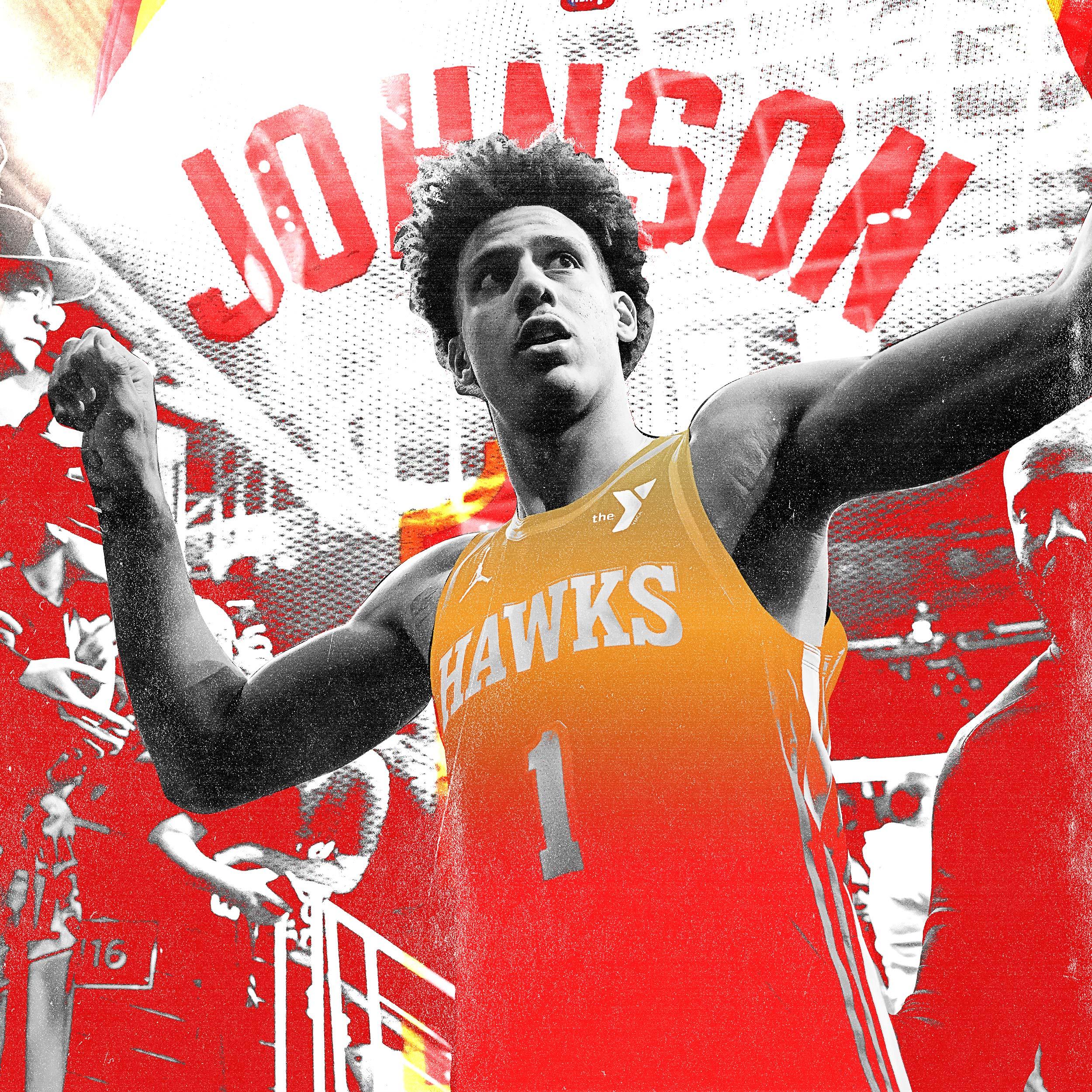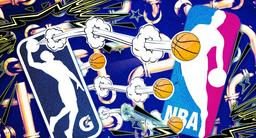A seemingly simple question is posed to Atlanta Hawks forward Jalen Johnson, the ascendant 23-year-old human fireworks display who’s currently enjoying what might be this NBA season’s most meaningful glow-up: What is your role?
Johnson pauses: “I’d describe it as … trying my hardest to … I mean, my role would be …” He starts to laugh and takes another stab at it. “I know this is cliché. I know plenty of people have probably said this in interviews with you. But I just try to impact winning in every way possible.”
The question gets to the heart of what makes Johnson as singular as he is impressive, a rising star whose game contains no caveats. He can do pretty much everything that matters on a basketball court. There’s no concerning “yeah, but” to his skill set, he unleashes his talent using a powerful, effervescent 6-foot-9 body, and he’s comfortable and confident in just about any scenario.
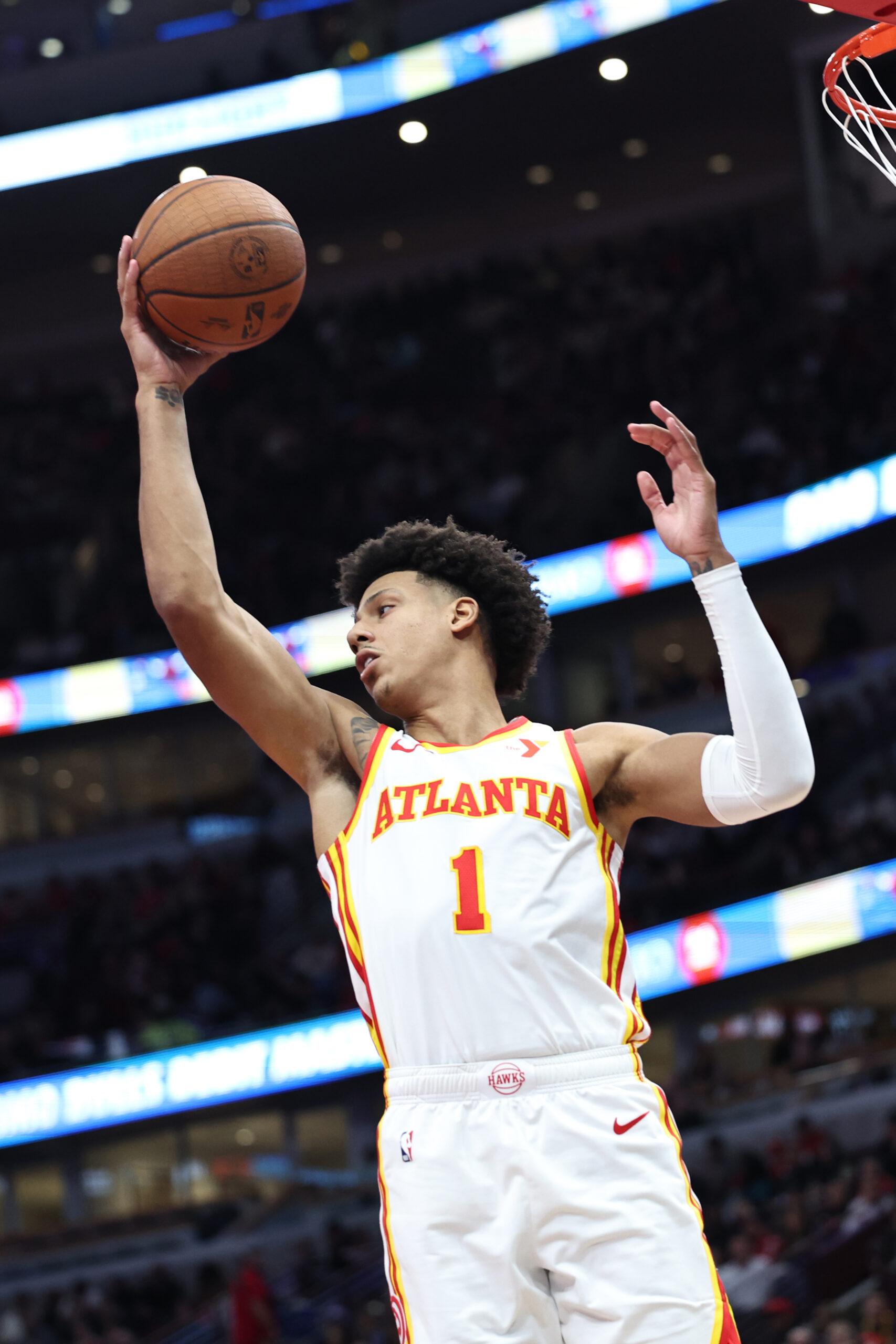
Johnson is one of just four players averaging at least 19 points, 10 rebounds, and five assists per game this season. The other three are Nikola Jokic, Domantas Sabonis, and Giannis Antetokounmpo. Unlike them, Johnson doesn’t function in an offense that revolves around him. Instead, his team’s system benefits from all the ways he complements it. Johnson is daring but solid, well-rounded and dominant without a script, modern and timeless at the same time, defying traditional definitions as a paradigm-shifting representative of an NBA era that demands two-way adaptability and frowns upon specialization.
Being complete is something his dad, Roderick, who played college basketball at Wisconsin-Milwaukee and Southeast Missouri State before a two-year professional career in Poland, has preached since Johnson was little. “You don’t want to be limited in just doing one thing or just focus on one thing because if that part of your game gets cut off, you can still be a factor. That’s the challenge that I take on every game,” Johnson says. “Whether it’s my rebounding, whether it’s my transition playmaking, whether it’s just hitting open shots.”
Johnson’s value is evident—the Hawks are a team-high plus-36 when he’s on the court and a team-low minus-105 when he sits—and his stats are admirable enough. But, aesthetically, there just aren’t very many players who combine dunk-contest-crashing bounce with an ability to know where everybody is and a desire to give them the ball. In the whole league, only Tyrese Haliburton has passed more times than Johnson this season. The only players who’ve seen their true usage rate rise higher over the past two years are Scottie Barnes and Franz Wagner.
His emergence comes after a disappointing 36-win season, when the Hawks were lost and desperate for stability, composure, and hope. As trade rumors swirled around Trae Young (the longtime face of the franchise), Dejounte Murray (an All-Star they traded for in 2022), and nearly every other mainstay on last year’s roster, Atlanta won the lottery, selected Zaccharie Risacher, and then swung a coup, exchanging Murray for Dyson Daniels, Larry Nance Jr., the Lakers' 2025 first-round pick, and another one in 2027.
It was a transformative offseason that helped rectify an era that had gone astray after an Eastern Conference finals appearance in 2021. Not only did Atlanta’s front office add several exciting, young pieces who make sense next to Young, but it also created a craterous void for Johnson to fill—giving him the freedom to exhibit all the different ways he impacts winning on both sides of the ball.
When teammates are asked about his role, the responses range from rhapsodic soliloquies to unsubtle gestures—a chuckle, side-eye, or blank stare—that communicate his immeasurable influence on the action.
That motherfucker can do whatever he wants out there, and there’s nothing people can do about it. ... I think, honestly, he’s been probably our overall best player this year.—Onyeka Okongwu
“I would say he’s the motor behind our team. If Trae is the brains of the operation, JJ is what keeps it moving,” Nance tells me. “We are best when we play fast, and, honestly, anytime he gets a rebound, it’s an automatic fast break. Guys that do that, at that size, the names you’re talking about are All-NBA names. ... He doesn’t really have plays called for him—the whole game, the way we play, is his play call.”
According to Sportradar, Johnson is generating 1.34 points per chance in transition, which ranks third out of 61 players who’ve logged at least 75 plays.
“We go as he goes. Whatever you want to call that role, it’s one of the most important roles you can have on a team,” Hawks guard Garrison Mathews says. “I mean, he’s the guy. Him and Trae are the guys.” Clint Capela looks down and starts to count his fingers: “Scoring, rebounding, playmaking. He can guard, has length to block shots.” Atlanta’s starting center runs out of digits and smiles. “It’s kinda like … everything. He does everything, right?”
Put in more blunt terms by Hawks backup big man Onyeka Okongwu, one of Jalen’s closest friends on the team: “That motherfucker can do whatever he wants out there, and there’s nothing people can do about it. ... I think, honestly, he’s been probably our overall best player this year.”
That statement is debatable, but the mere fact that it’s being said out loud is trajectory-altering for an organization that’s spent the past seven years looking for a bona fide costar for Young. If there’s one thing to take from Johnson’s play so far this season, it’s that Atlanta can call the search off.
Selected 20th in the 2021 draft, Johnson was plopped onto a deep Hawks team that had just reached the conference finals and was ostensibly on the verge of title contention. Opportunity was limited. As a rookie, he played 21 games for the G League’s College Park Skyhawks and just 120 total minutes in the NBA. The next season, Johnson cracked the Hawks’ rotation but wasn’t much more than a 10th man, wedged behind a frontcourt that featured John Collins, De’Andre Hunter, Capela, and Okongwu.
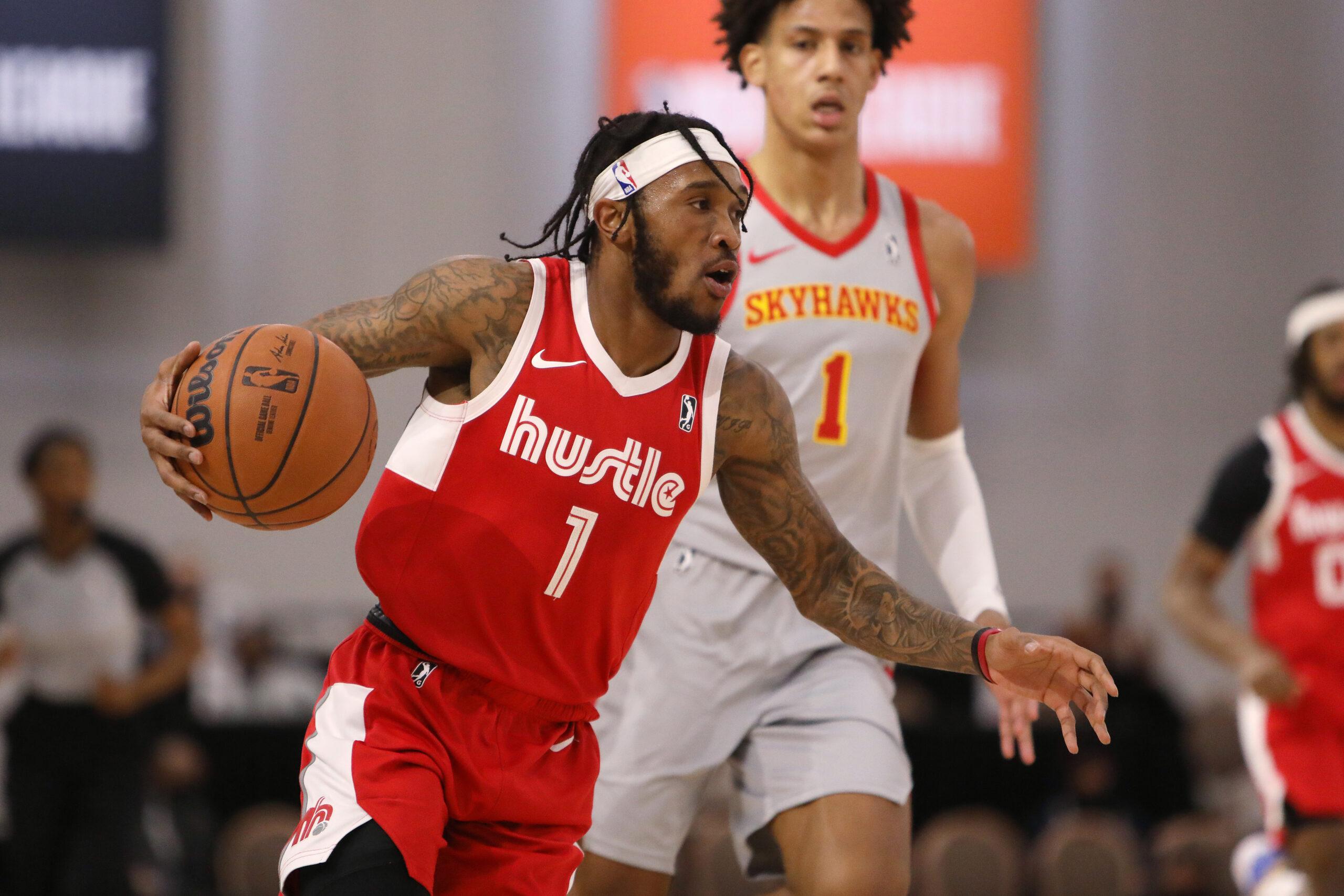
“I feel like this is his second year,” Young joked last week after Atlanta beat New York in the NBA Cup quarterfinals, a game that might’ve been the biggest of Johnson’s career up to this point. (In 41 minutes, he got 21 points, 15 rebounds, seven assists, two steals, and two blocks.)
Coming into 2024-25, it wasn’t hard to foresee a breakout season. After the Hawks traded Collins to the Utah Jazz in 2023, Johnson’s minutes more than doubled, and his scoring average tripled. This past summer, Murray’s move to New Orleans kept Johnson’s production on a hockey stick trajectory with no roof in sight. Right now he’s averaging the fifth-most touches per game in the league, 23 more than last season—the third-largest jump among all starters.
The expanded role was never explicitly communicated before this season began, though. “It was one of those things that I think everybody just kind of knew,” Johnson says. On October 21, he signed a five-year, $150 million contract extension that confirmed his role as an integral building block for an organization that had been heading in the wrong direction. But Johnson’s fourth season didn’t start smoothly. In his first three games, he shot just 29.7 percent from the floor, and that stretch culminated in a blowout loss to the Oklahoma City Thunder in which he scored a season-low seven points. Looking back on it, Johnson says he put too much pressure on himself. “I was overthinking what I do,” he says. “When I’m not overthinking anything and when I’m not predicting what’s going to be next, that’s when I’m at my best.”
Constructive talks with coaches and teammates encouraged him to trust his instincts and all the work he put in during the offseason. Since then, he hasn’t looked back, averaging 20.4 points, 9.9 rebounds, and 5.9 assists per game since November 1, with a 59.7 true shooting percentage.
The results have shifted what Atlanta can do, accelerating its rebuild while lessening any urgency for more dramatic change. A big reason for that is that Johnson has shown he can prosper while still making everyone around him better. Whether it’s the 21-year-old Daniels or 19-year-old Risacher, Atlanta’s other core pieces can’t help but appreciate the way Johnson puts them in positions to succeed.
“I think he complements this team perfectly,” Daniels says. “There’s no weakness to his game.”
Just watch these two no-look slingshots to Risacher in the corner. They’re the type of passes that engender trust and inject confidence.
Johnson is a fountain of basketball generosity, someone who single-handedly eliminates the type of my-turn, your-turn tension that Atlanta suffered through with Murray and Young as its two leading scorers. He feeds and eats: eager sous-chef and professional taste tester.
“That’s just how I grew up playing basketball, and that’s how I enjoy playing basketball,” Johnson says. “I just love the feeling I get from making something happen for one of my teammates because I know what it does for me personally and how I feel after it.” He grew up studying LeBron James and Magic Johnson (his dad’s favorite player), memorizing passes they made out of the mid-post and in the open floor. Once he sprouted to be the same height, Johnson realized he could create similar opportunities for teammates in a unique way.
That effortlessly selfless mentality, an innate, unteachable understanding that wins are easier and more natural to come by when five players are a threat instead of one, isn’t typical of a 23-year-old. “It makes him a special guy and a guy that you love to play with,” Capela says. “You know that he’s gonna find you. It makes everything so much easier for the whole team.”
Despite having tangible physical advantages, touch around the basket, and an ability to move like the wind while dribbling the ball, Johnson doesn’t isolate or post up very often. The means of his production, right now, are atypical of a conventional All-Star candidate; they materialize within the flow of his unpredictable rhythm. There are 35 players who average at least 70 touches per game; only Domantas Sabonis averages fewer seconds per touch.
“He, in a lot of ways, represents how I think our team has to play to create the high ceiling that we have,” Hawks head coach Quin Snyder tells me. “Anytime he’s making quick decisions, whatever those decisions are.”
In other words, Johnson is happy to make the extra pass, swing the ball from one side of the court to the other, or get off it while the opponent is still reacting to something else. Sometimes he gets a little too adventurous—“I know I definitely need to cut down on some of my turnovers; but that just kind of [comes] with the growing pains, you know? I’m learning from that still and gonna definitely get better as time goes on,” he admits—but overall, Johnson’s spontaneous playmaking all over the court, from myriad angles, in various situations, makes Atlanta’s offense so hard to prepare for. He can skip a lefty dime to the corner on one play and then drop a behind-the-back bounce pass while racing full speed in the open floor a few minutes later.
“I hate doing this, but it is a little bit Bron-esque,” says Nance, who was James’s teammate in Cleveland during the 2017-18 season. “With certain guys, it’s like, ‘Hey, these are their plays. Here is where they’re going to catch the ball. Here’s how we load up to stop it.’ Pretty static players. [But] you can’t game-plan for somebody like Bron or Giannis or JJ because how do you game-plan for 6-foot-9, 240 coming downhill at the speed of a guard that can pass like a guard? I don’t know. Clearly, NBA teams don’t know either.”
Nance still can’t process one play against the Celtics, where Johnson flipped a lob pass that left enough of an impression on the veteran for him to be able to cue it up on demand. (During our conversation, Nance rattled off the possession’s exact time stamp in the second quarter.)
“It was the type of play that you just don’t see from somebody that young, from somebody that inexperienced. I can’t get over it because to be able to make that read while being guarded by Jrue Holiday, … he’s just able to take one dribble and throw this from-the-hip lob. You shouldn’t be able to do that,” Nance says. “He does things and he doesn’t understand how difficult they are.”
Johnson’s vision is uncanny by itself—when attached to his trapeze-act athleticism, it makes him truly special. The list of defenders Johnson has dunked on this season is long, but it’s shorter than the one counting every player who’s gone out of their way to avoid becoming the victim of a viral moment. In one play against New Orleans, Johnson gathered a pocket pass at the free throw line, took one step, and then proceeded to rock the rim. Pelicans rookie center Yves Missi, the low man supposed to rotate over, looked on from a few feet away with cement in his sneakers. Missi’s teammate, Trey Murphy III, was so disgusted he motioned for a timeout:
“All the bodies he catches,” Okongwu says, “he’s put a few folks in the basket. I’m like, ‘Damn, I wish I could do that.’”
As Johnson’s production has continued to rise, so has his status, around the league and inside his practice facility. Such an immense, balanced talent deserves a degree of responsibility that’s normally shouldered by franchise players—something that has the potential to overwhelm anyone who averaged 2.4 and 5.6 points per game in their first two NBA seasons, as Johnson did.
He’s still on the ground floor of handling those duties, but there are some promising signs that he’s equipped to manage them. One came a few minutes into the fourth quarter of a November game against the Pelicans, when Brandon Ingram scored five points in about a minute to trim Atlanta’s lead. On the next play, Johnson ran over to Ingram’s man, David Roddy, and instructed him to check Pelicans forward Jeremiah Robinson-Earl instead. Ingram scored one basket the rest of the game, which Atlanta won comfortably.
The sequence did more than showcase Johnson’s ability to neutralize a great scorer. It demonstrated the sort of competitive mindset that makes household names just that. “We were making a little run on the offensive end, but we weren't getting stops yet,” Johnson remembers. “I just wanted that matchup. I wanted to take on that challenge.”
To his veteran teammates, moments like this are telling. “When shit matters, … when it came time to [say], ‘Hey, we need a stop,’ there was no question about who was on the ball. When Kawhi [Leonard] was doing his thing. Giannis, too,” Nance says. “Sure, you gotta save your energy, … use it wisely. But when it matters, it’s your time. And that’s a major step for him, of realizing, ‘Oh, yeah, I’m young. But I’m that guy.’”
Nance sees Johnson flourishing before his eyes, playing like someone who suddenly deserves All-Star consideration, and he can’t imagine how much of a whirlwind it must be to not only adjust to life as a focal point on opposing scouting reports but also learn that it’s OK to speak up and voice an opinion.
“Some stars, you gotta have some asshole to you,” Nance says. “So, like, if you see something, you say it. If you want something, you say it. And if I were to do that, ‘Yeah, Larry’s an ass.’ But I’m getting him to realize: ‘Some rules don’t apply to you, man. You can look around and count how many guys are doing what you’re doing on the court and see how they speak with their teammates, see how they command respect in a locker room, see how they carry themselves. If you don’t like something that’s happening out there, change it! You’re a guy here. You’re a guy in the league. The better you are, the more input you get on how you’re used.’ Getting him to understand that’s not high maintenance, that’s not mean. You’ve earned it. You’re here. You’ve arrived.”
As Johnson continues to ripen, he and Young could develop the type of strain that’s been common throughout NBA history. But, so far, there’s reason to believe he can coexist with and accentuate Atlanta’s three-time All-Star point guard in ways that haven’t materialized with anyone else in this era of Hawks basketball. Right now, 71 of Young’s assists are to Johnson, which is the most any player has fed a teammate this season.
“It’s so easy playing with Trae,” Johnson says. “It’s kind of easy to understand and read what he wants to do and what he sees. It’s easy to create openings for myself, and with him, you just always got to be ready, because I know when I’m making a pass I want all my guys to be ready. This is only the beginning for us, and we just keep getting better as time goes on as we continue to figure this thing out.”
What really makes Johnson the best teammate Young has ever had is how he simultaneously thrives in and away from what has long been a formulaic, pick-and-roll-heavy ecosystem. Johnson burns bright on his own and is productive enough to diversify Atlanta’s on-court style for the betterment of everyone involved. Without losing the charitable traits that make him so distinct, Johnson wants to mix in some more traditional scoring chances that are emblematic of every great offensive player—getting to kill spots on the floor whenever he wants and putting the ball in the basket.
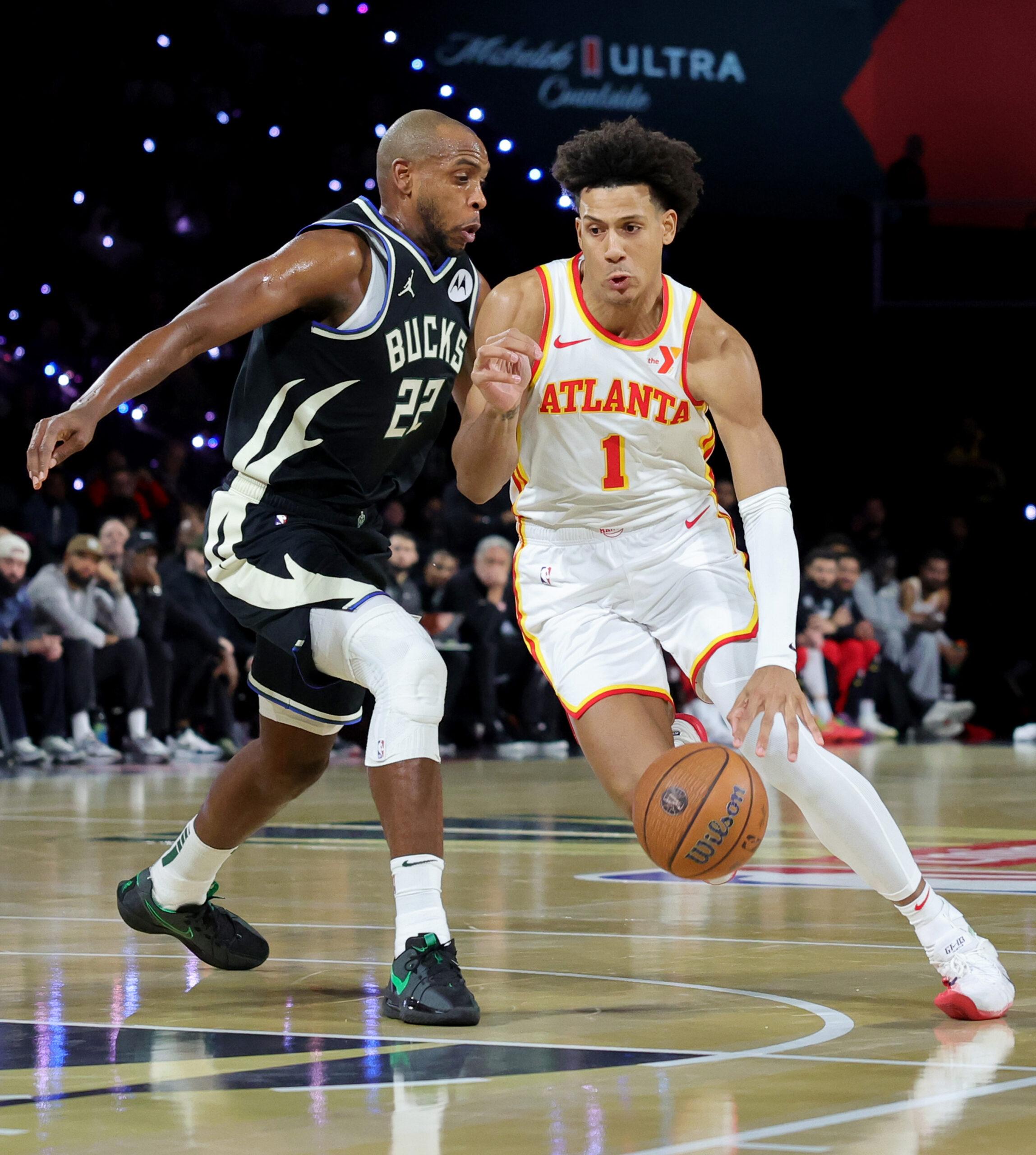
It’s something he already works on during the offseason with his trainer, Chris Johnson, who calls him from time to time to ask why Jalen didn’t take advantage of certain moves they spent hours honing in the gym. That will come, though. Johnson is ambitious without a massive ego, constantly asking Nance and Capela about some of the Hall of Fame teammates they’ve played with in search of absorbable information about their workout habits. In kind, they take every question seriously, knowing every morsel of advice won’t be wasted on someone so sincerely curious.
“You see all the best players in the league, Giannis and Jokic, they just do it every night,” Capela says. “That’s the difference, right? When you watch the best players, it’s like, ‘I had 40 tonight. Let me get 40 [tomorrow].’ Like that’s the type of mentality he’s going to have to get to to be among the certified All-Stars. But I see him working on his body, on his balance, on his shot, in the weight room. He’s gonna get there.”
The question of whether he looks like one of the best players at his position isn’t much of a question at all to people around the Hawks. To Jalen Johnson, if he stays on the track he’s currently on, meaningful recognition will take care of itself.
“I just feel like I got what it takes to be a consistent All-Star in this league,” he says.
It’s not outside the realm of possibility for him to make it this year. Combine Johnson’s statistical profile on a competitive team that’s beaten the Celtics (without Trae), Cavaliers (twice), Bucks, and Knicks (twice) with the number of injuries that have knocked out several assumed shoo-ins (Joel Embiid, Paul George, Paolo Banchero, Wagner) and what you have is a good case.
“Obviously, we have to keep winning,” Nance says. “But I’ve seen players that haven’t affected the game as much as he has [become] All-Stars.”
Voters (fans, the media, and coaches) are sometimes hesitant to reward initial breakthrough seasons, instead falling back on names they’re more familiar with. This could hurt Johnson, particularly with Young drawing considerable attention with his league-leading 12.1 assists per game. But Johnson’s body of work firmly puts him in the mix, and makes him potentially more deserving than several others.
“I just gotta keep working. I gotta keep putting the team first with everything and just keep stacking wins,” he says. “That’s the main thing. I feel like I just gotta keep waking people up, man.”
